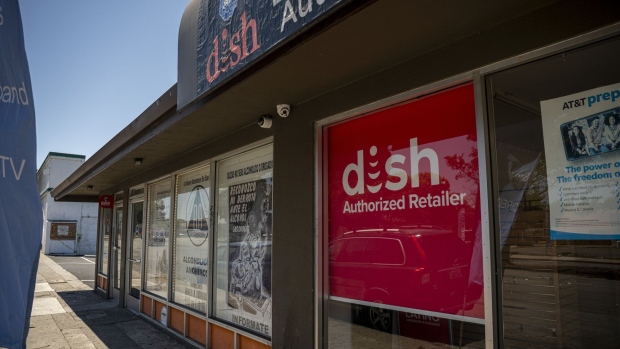Jan 12, 2024
Dish Creditors Weigh Legal Options Including Default Notice
, Bloomberg News

(Bloomberg) -- Some Dish Network Corp. creditors are examining legal options including sending a default notice to the company after it moved prized assets out of bondholders’ reach, according to people with knowledge of the matter.
The discussions come after the company’s bonds plummeted — in at least one case to a record low — on its decision to shuffle valuable spectrum licenses and television customers into new legal entities. Such moves are often precursors to rescue money deals that hurt existing creditors.
The creditors are considering whether Dish’s asset transfers run afoul of rules governing the company’s debt contracts, giving rise to a technical default, said the people, who asked not to be identified because the discussions are private. The deliberations are in their early stages and no decision has been made, the people said.
Default claims often lead to expensive fights in court that can take months or years to play out as a company and its creditors argue over rules of borrowing. Assertions of default don’t necessarily mean a company is in serious financial trouble.
Representatives for Dish and EchoStar Corp., which recently combined with Dish, didn’t immediately reply to a request for comment.
Earlier this week, the Englewood, Colorado-based company transferred a handful of wireless spectrum licenses into a new legal entity under EchoStar, and freed a new unit holding 3 million television subscribers from debt covenants.
Read more: Dish Network’s Wireless Dream Turns Nightmarish for Creditors
Debt investors have been fighting over aggressive asset transfers — including a now-infamous financing from J. Crew Group — for years. Frequently, the spats end up in court, although in many cases judges ultimately bless the deals.
Dish has struggled to transition from a legacy pay-TV business into a wireless communication company, saddling itself with more than $20 billion of debt in the process and crimping its access to credit markets. Its recent merger with EchoStar, the satellite network it spun off in 2008, is expected to buy time for its 5G buildout, but the company still must address looming debt maturities.
A group of creditors hired investment bank Lazard and law firm Milbank for advice on how to respond to the asset moves, Bloomberg previously reported. The company is working with Houlihan Lokey and White & Case.
--With assistance from Todd Shields.
©2024 Bloomberg L.P.





